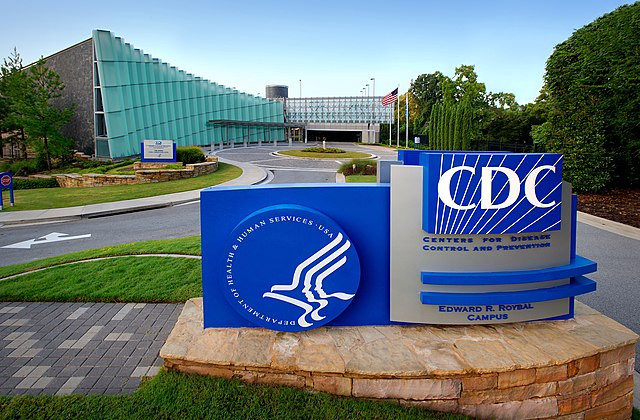Federal and state investigators on Tuesday detailed the motive and actions of the man who fired nearly 500 shots at the U.S. Centers for Disease Control and Prevention in Atlanta last week, revealing he broke into his father's gun safe to carry out an attack aimed at protesting COVID-19 vaccinations.
The shooter, identified as 30-year-old Patrick Joseph White, used a long gun and other weapons stolen from his father to unleash a barrage from across the street at the CDC's main campus, Georgia Bureau of Investigation Director Chris Hosey said. White's writings, recovered during a search of his home in Kennesaw, Georgia, "expressed the shooter's discontent with the COVID-19 vaccinations" and a desire to "make the public aware of his public distrust of the vaccines," Hosey said.
White died from a self-inflicted gunshot wound after fatally shooting DeKalb County police officer David Rose. Authorities said he had no criminal history but had "recently verbalized thoughts of suicide," prompting a law enforcement contact weeks before the attack.
Investigators recovered five firearms-a mix of rifles, a shotgun, and a handgun-all belonging to White's father. "He broke into it," Hosey said, referring to the locked safe from which the weapons were taken. The Bureau of Alcohol, Tobacco, Firearms and Explosives confirmed all firearms were legally owned by the father.
The shooting began just before 5 p.m. Friday at a CVS across from the CDC. Roughly 200 of the shots struck six CDC buildings, shattering "blast-resistant" windows and forcing employees to shelter in place. More than 500 shell casings have been recovered, according to the GBI. No CDC staff were physically injured.
FBI Special Agent Paul Brown, who heads the bureau's Atlanta office, said there has been no "uptick" in threats tied to misinformation about the CDC or vaccines, but stressed that "any rhetoric that suggests or leads to violence is something we take very seriously."
The CDC held an all-agency virtual meeting Tuesday that some employees criticized for lacking new information. Sources inside the agency said comments were disabled, questions could not be asked, and technical issues delayed mental health resource updates. "Not much new in that meeting," one CDC employee said, calling it "more for our hearts than our heads."
Many staff members want answers about security protocols, including why some did not receive text alerts during the attack. Others questioned whether the Trump administration's repeated criticism of federal health officials and vaccine programs, as well as the appointment of U.S. Health and Human Services Secretary Robert F. Kennedy Jr.-a longtime vaccine skeptic-had contributed to an environment that emboldened violence.
Kennedy visited the CDC on Monday alongside Deputy Secretary Jim O'Neill and Director Susan Monarez, saying in a statement, "No one should face violence while working to protect the health of others." He also met with Officer Rose's widow. In an internal video, Monarez told staff, "Science and public health should never be under attack," pledging that employee safety and well-being remained her "highest priority."




